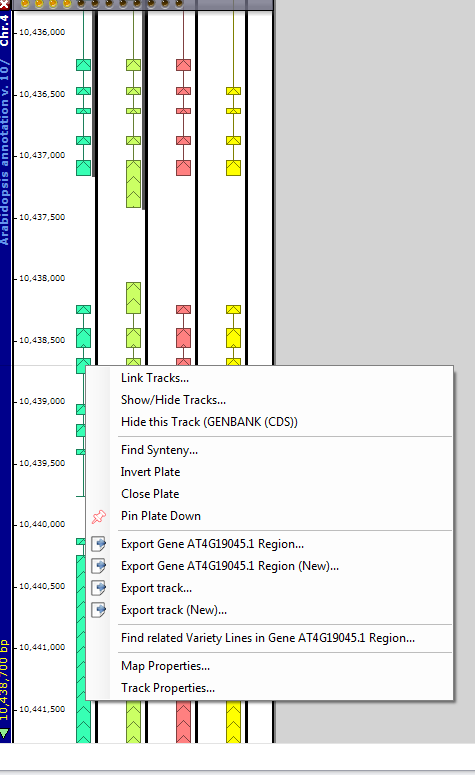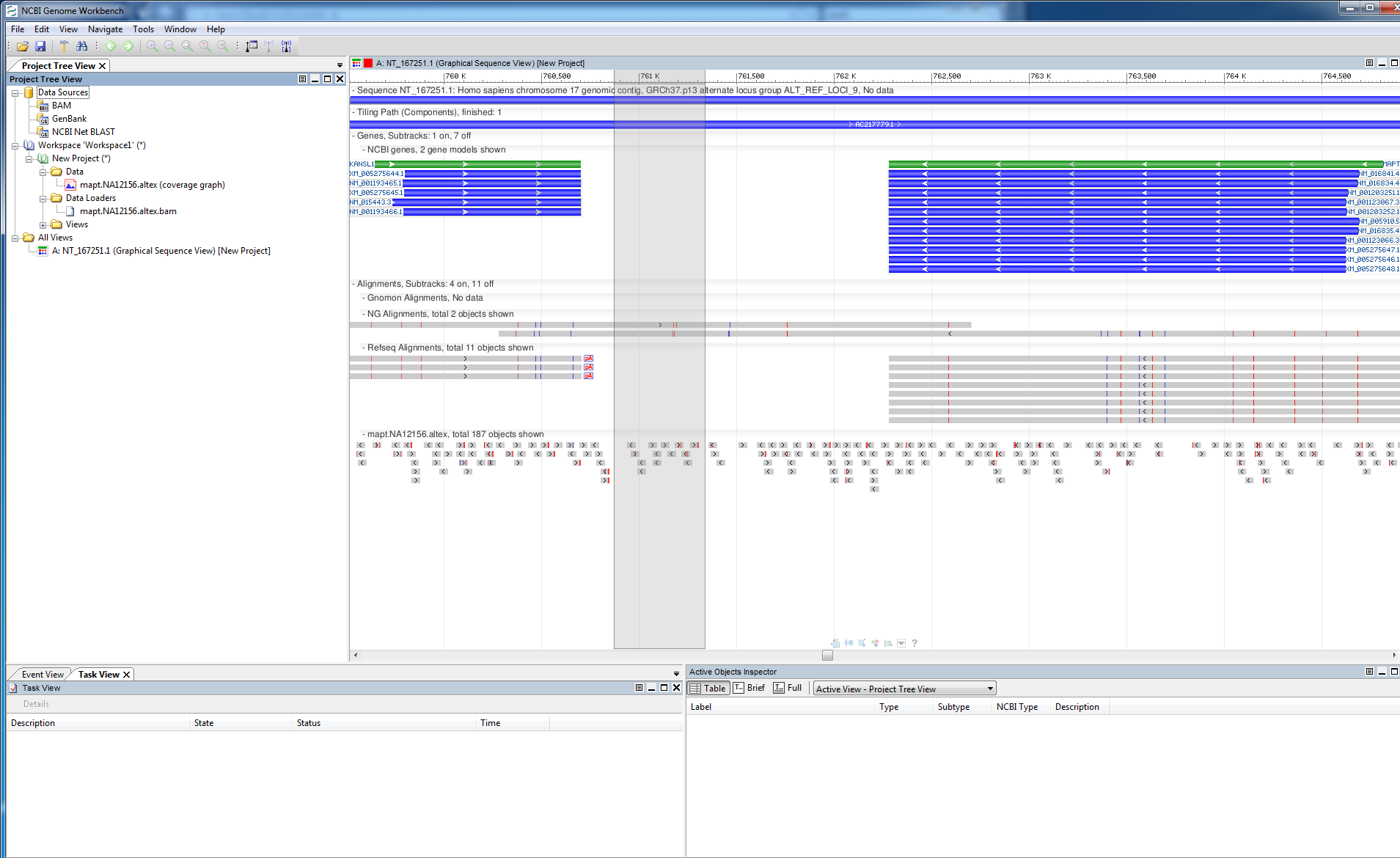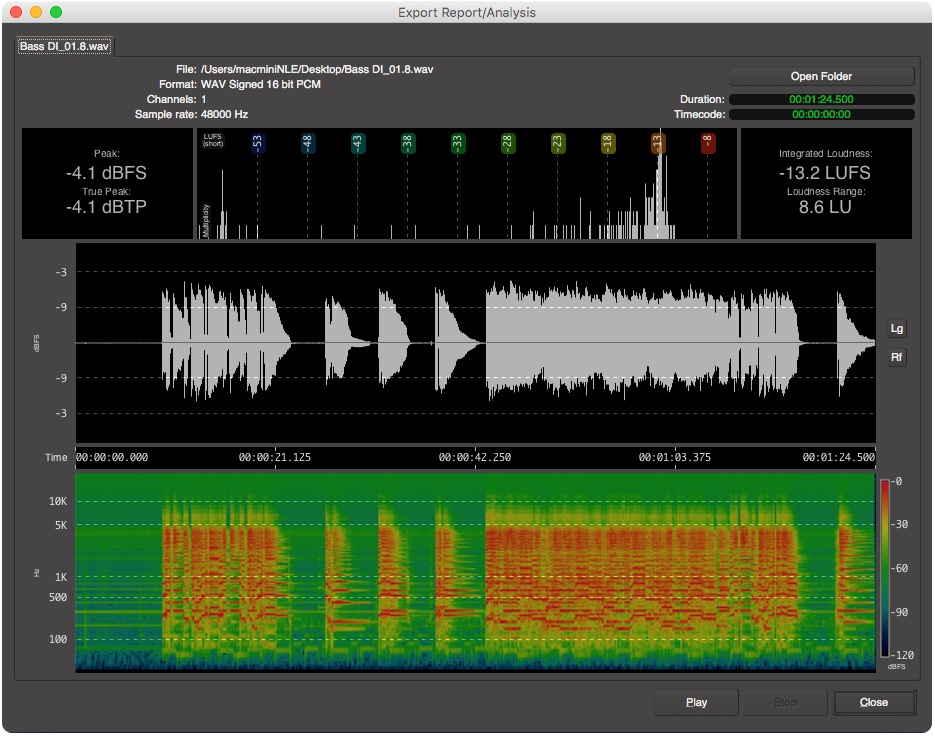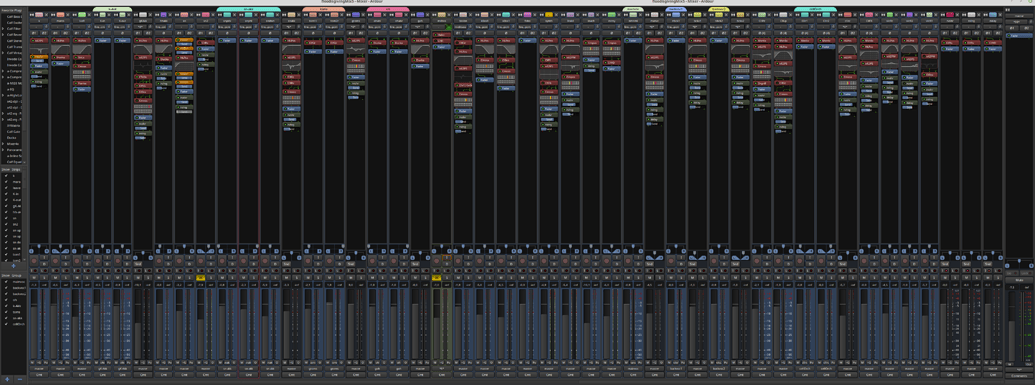

They’ll never be as good as a pair of trained human ears.īut they are surprisingly good for quick masters or demos, and they’re cheap too. These are just algorithms that can analyze your song and optimize it to sound like a standard released track, so they’re not perfect. If cost or time is an issue for you, though, then I’d recommend trying an automated mastering service like LANDR or Aria. That’s why I recommend hiring one to work on your mixes.

Mixbus export with clicktrack professional#
If need be, you wouldn’t want to not have to master the song at all.īut hiring a professional gives you what hours of practice cannot: objectivity. Ultimately, you want to mix with the master in mind. Learning how to master a song is important, because it changes how you mix. They can make your song sound even better than it did before. Think of it like getting a second opinion after you’ve gone to the doctor.īecause mastering engineers have not heard your music before, they can catch the mistakes you’ve made over hours and hours of mixing. These mastering engineers were able to get better results than anyone else.īut here’s the REAL reason mastering engineers exist: Mastering is a very special step with its own difficulties, so certain audio engineers began to specialize in these techniques. Realizing where the problem areas are is ten times more difficult for you! You’ve heard every second of that mix over and over again. If you have been mixing a song, you no longer have objectivity. Mastering is all about getting a second opinion. You also want to master your songs when you are putting out an album or an EP, to make sure all the songs are the same volume and have the same “tone.” The point of mastering is to make a song “sound like” other professional songs on the market, so that when they’re heard on the radio, or in a playlist, or in the credits of a movie, they don’t sound out of place. It also creates “Red Book” standard files for CD printing and audio streaming.

To make the track more translatable to all different kinds of speakers.To make the track louder (not just in volume, but also in PERCEIVED volume.Mastering a song is simply using tools like EQ, compression, saturation, and limiting to accomplish these three things: It’s what happens to a song before it gets released to the world. It makes the songs louder?” I’ve since learned the secrets of audio masterinĪudio Mastering is the final step of the mixing process. I’d ask people over and over, and I’d get back the same answer: “.I dunno. I refer to it as “The Great Mystery of Audio.” For years, I knew it existed, I knew it was important…. You don’t need to enter your email address or anything.īut if you just want to learn all about mastering specifically, keep reading. Until now, everyone has been teaching production totally backward. We put together a brief training that covers a totally new approach to music production. I’m guessing you’re here because you want to make your mixes sound professional. Get industry-quality every time (steal this framework) Step 14: Bounce It (at 16 bits and 44.1kHz).

Step 7: Listen for The First Time (and Take Notes).Step 6: Create a New Project and Import Your References.Step 5: Take a Break (of at LEAST One Day).Step 2: Finish Your Mix (to Sound Mastered).Get industry-quality every time (steal this framework).


 0 kommentar(er)
0 kommentar(er)
